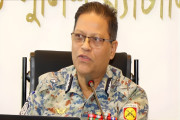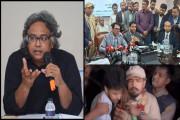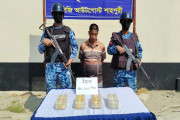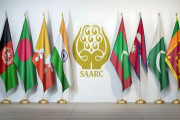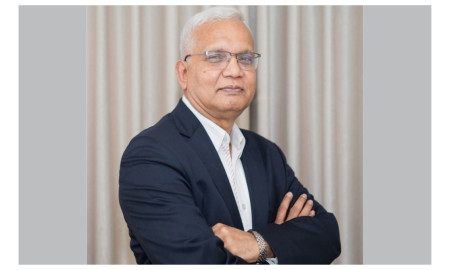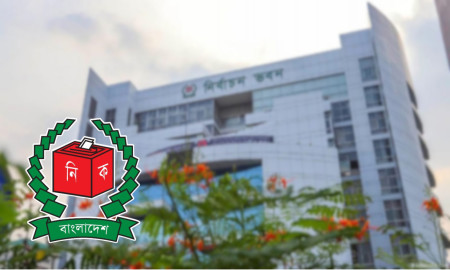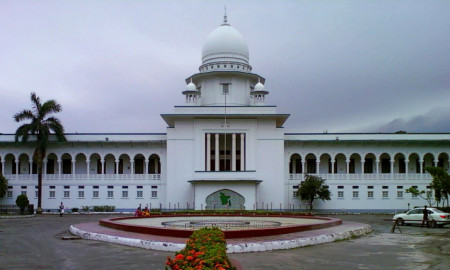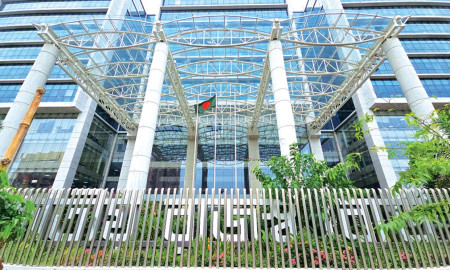Secondary Practical Education Limited to Writing Notebooks Only
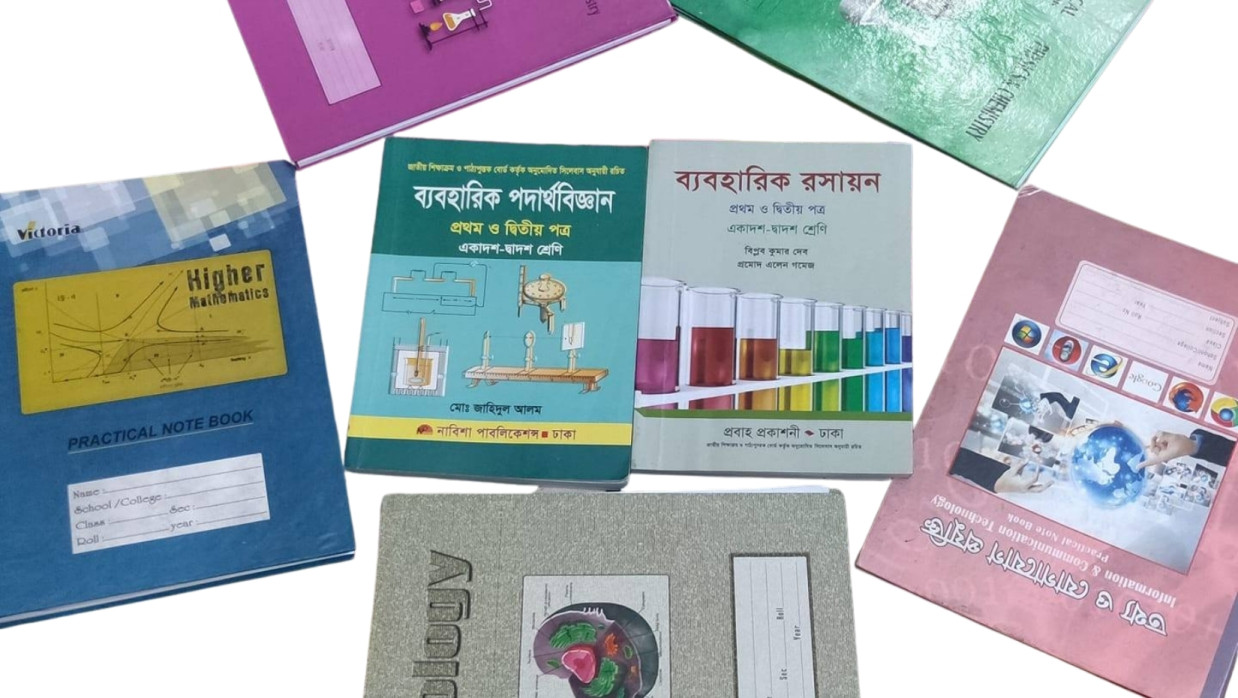
Practical education is more important than theoretical knowledge in fostering open-minded and scientific thinking among students. However, the state of practical education in Bangladesh’s secondary education system is entirely the opposite. Practical education receives less than a quarter of the attention given to theoretical learning. Secondary practical education is confined to writing notebooks, preventing students from gaining hands-on scientific experience. This dire situation stems from the lack of laboratories in educational institutions, insufficient equipment, a shortage of teachers, and an unfavourable learning environment. Additionally, stakeholders also blame teachers’ lack of training, interest, and negligence.
According to the Bangladesh Bureau of Educational Information and Statistics (BANBEIS), 29% of secondary schools in the country have not established any science laboratory, meaning nearly one-third of secondary schools lack labs. Among those with labs, most schools do not conduct classes in them. Some institutions have labs that have remained locked for 5–10 years, with equipment inside gathering dust and becoming damaged.
Inquiries revealed that, except for a few renowned schools, most do not hold regular practical classes. In top district-level schools, only 8–10 practical classes are conducted before exams, from which students learn little hands-on. In many schools, practical classes are taught in classrooms without using labs. There is no substitute for lab-based practical classes to teach hands-on the topics covered in textbooks. Yet, in Bangladesh’s secondary education system, practical education is limited to copying from guidebooks into notebooks. This reflects a lack of interest from the Directorate of Secondary and Higher Education (DSHE), education boards, schools, and teachers. No effective steps are taken to implement practical education. While the government emphasizes vocational and practical education, secondary education authorities consistently show indifference.
Conversations with headteachers, science teachers, and students from various schools revealed that most schools do not conduct practical classes in Class 9. In Class 10, a few classes are held. Some government schools have labs but lack the necessary equipment. MPO-enrolled schools may have some equipment but no labs. Most private schools lack both labs and equipment. Despite DSHE guidelines mandating regular practical classes for Classes 9 and 10, many schools do not hold a single practical class in two years.
Students who appeared for this year’s SSC exams from private schools said, “In the two years of Classes 9 and 10, we never had a practical class. Our school has no lab or any equipment for practicals.”
When asked how they participated in practical exams, they replied, “We were given last year’s practical notebooks to copy from. During the exam, we wrote by looking at those notebooks.”
Several SSC examinees from the Comilla Board said, “During the viva, the examiner asked if we’d be happier with or without it. We said we’d be happier without it, so they didn’t conduct the viva. We wrote our exams using practical notebooks and guidebooks.”
Lecturer Zeba Farhana and Professor Kazi Afroza Jahan from Dhaka University’s Institute of Education and Research conducted research titled “The Current State of Practical Biology Education at the Secondary Level in Bangladesh.” The study, based on a survey of headteachers, biology teachers, and students from 23 secondary schools across seven districts, found that 25% of secondary students study science. However, most schools lack qualified teachers, increasing pressure on existing staff and reducing their interest in practical education. Additionally, laboratories lack sufficient equipment and testing materials.
Only 17.65% of schools have science clubs. About 41.17% organize science fairs or have students participate in them. Approximately 17.65% arrange annual science tours or science-related debates.
The poor state of science education was also highlighted in a Save the Children study. A survey report titled “Child Parliament,” funded by the NGO, stated that the absence of laboratories and practical classes hinders students’ practical knowledge development. Of the surveyed secondary school students, 61.7% said they have no practical classes. Additionally, 39% reported paying extra fees for laboratory access.
Due to COVID-19, SSC exams were not held in 2020, and in 2021, practical exams were skipped despite written exams occurring. Practical exams resumed after two years, but allegations arose that exam centers conducted them arbitrarily, ignoring board guidelines. Previously, the Secondary and Higher Secondary Education Board issued subject-specific instructions.
These instructions stated that the two-hour biology practical exam, carrying 25 marks, requires students to answer one question selected by lottery. Marks are allocated as follows: 1 for the experiment’s name, 1 for materials or equipment, 3 for procedure and demonstration, 3 for drawing, 2 for labelling, 2 for observation, 2 for conclusion, and 1 for precautions. Additionally, 4 marks are for explaining the experiment’s results, 4 for the viva, and 2 for the practical notebook and sheet.
However, discussions with examiners and examinees revealed that these guidelines were not followed. A Jessore Board examinee said, “Our biology practical exam was like a theoretical one. Some memorized answers, others copied from notebooks or mobiles for a 15-mark question. No experiments were conducted, and no materials were provided. The viva was nominal; one question was asked, with barely 30 seconds to answer.”
A student from Faridpur’s Government MM Academy, who appeared for this year’s SSC exam, told The Daily Campus, “Our school never held a practical class. However, experiments were conducted during the practical exam.”
When asked how they managed experiments without practical classes, the student said, “We did it however we could. We learned how to conduct experiments from YouTube. Many copied others in the exam hall.”
Faridpur District Education Officer Bisnu Pada Ghoshal refuted these claims, telling The Daily Campus, “No school in my district skips practical classes. We monitor regularly. Upazila education officers oversee this. We provide instructions and advice in every district education office meeting. If any school disobeys these guidelines or skips practical classes, we will recommend action if informed.”
At Feni Government Girls’ High School, a center for SSC exams under the Comilla Board, multiple examinees said board guidelines were not followed for practical exams. Exams were limited to written and viva components, with no experiments conducted to assess learning. In some halls, vivas were skipped, which pleased students.
The school’s headteacher and center in-charge, Subrata Nath, told The Daily Campus, “I learned of this through you. I will inquire with the committee members.”
In practical classes, he said, “The government is trying hard to ensure this and has taken initiatives, but teachers lack interest. If teachers are proactive, this issue can be resolved. We also face a manpower shortage. We should have 52 teachers, but we have 36, with many on leave or ill. This is a common problem across schools. Recruiting new teachers to address the shortage could help.”
Addressing the issue, Mamunur Rashid, headteacher of Feni City Girls’ High School (private), said, “The infrastructural weaknesses and teacher shortages in schools cannot be denied. However, I believe if board guidelines were strictly followed during practical exams, schools would prioritize practicals. This would encourage regular practical classes, at least for better exam performance.”
In practical classes, Dhaka Education Board Chairman Professor Tapan Kumar Sarkar told The Daily Campus, “DSHE has set a routine specifying how many days and hours practical classes should occur weekly. We oversee exams.”
When asked about centers not fully adhering to board guidelines, he said, “If you have specific evidence, inform us. We will investigate and take action.”
Examiners complained that testing hundreds of students simultaneously leaves little time to evaluate them properly. They believe fewer examinees per day would maintain exam quality. The Dhaka Education Board Chairman said, “We announce dates, and exams are managed by centers. They conduct exams in shifts as they see fit. Each shift lasts two hours, and a center typically has 500–1,000 examinees. Centers can increase shifts to test fewer students, ensuring quality.”
Mohammad Belal Hossain, Director of the Secondary and Higher Education Division at DSHE, told The Daily Campus, “To ensure practical classes, we’ve included them in the class routine. Our monitoring wing oversees this, along with district education offices and field officers.”
On centers ignoring board guidelines, he said, “If any center conducts exams without fully following guidelines, we take action. Complaints must be lodged with us, and we will act accordingly.”
The government speaks of building a Digital Bangladesh, but how effective will this be with such fundamental flaws? If the country fails to produce science teachers and researchers, who will realize the dream of Digital Bangladesh? These questions arise in the minds of the conscious public.
Teachers believe that without practical education at the secondary level, students face negative impacts in higher education. Theoretical learning alone cannot address learning gaps, affecting students in higher secondary education. They struggle to understand concepts, and a weak foundation leads many to fall behind in higher studies. Practical education at secondary and higher secondary levels fosters research interest later on.
On challenges in higher secondary due to the lack of secondary practical classes, Mohammad Nurul Azim Bhuiya, Assistant Professor of Chemistry at Feni Government College, said, “Without secondary practical classes, students struggle in higher secondary. It takes longer to understand concepts. They don’t recognize equipment or know how to use it. Since they must conduct experiments here, this creates issues. Without prior practice, students weaken in practical classes after theoretical ones. Secondary practical classes would prevent this.”
On the impact of practical classes in higher education, Zeba Farhana, Lecturer at Dhaka University’s Institute of Education and Research, said, “If a student misses practical classes in school but attends them in college, learning gaps are partially addressed. However, if they miss practicals in both secondary and higher secondary, learning remains incomplete. Theoretical study may help understand 30–40%, or at most 60%, of science topics. Hands-on learning in labs or real environments is far more effective.”
She added, “In our study on secondary biology practicals, we found countless schools with labs where no practical classes are held. Some labs haven’t been opened in 10–12 years. Students enjoy practical classes more than theoretical ones and are interested, but teachers show little enthusiasm. There are reasons for this. Teachers need training, and dedicated, practical teachers should be appointed. This could improve the situation.”

